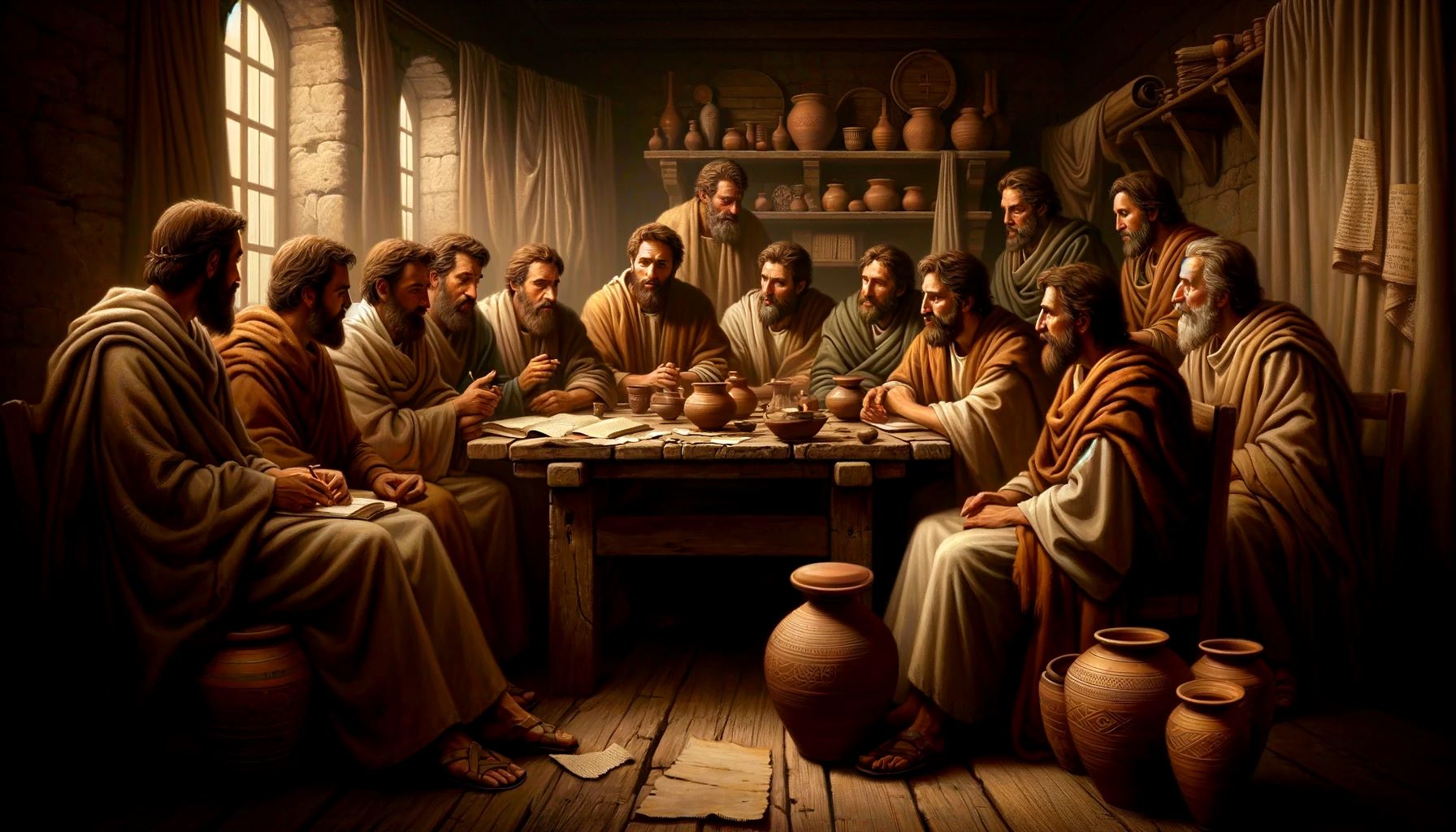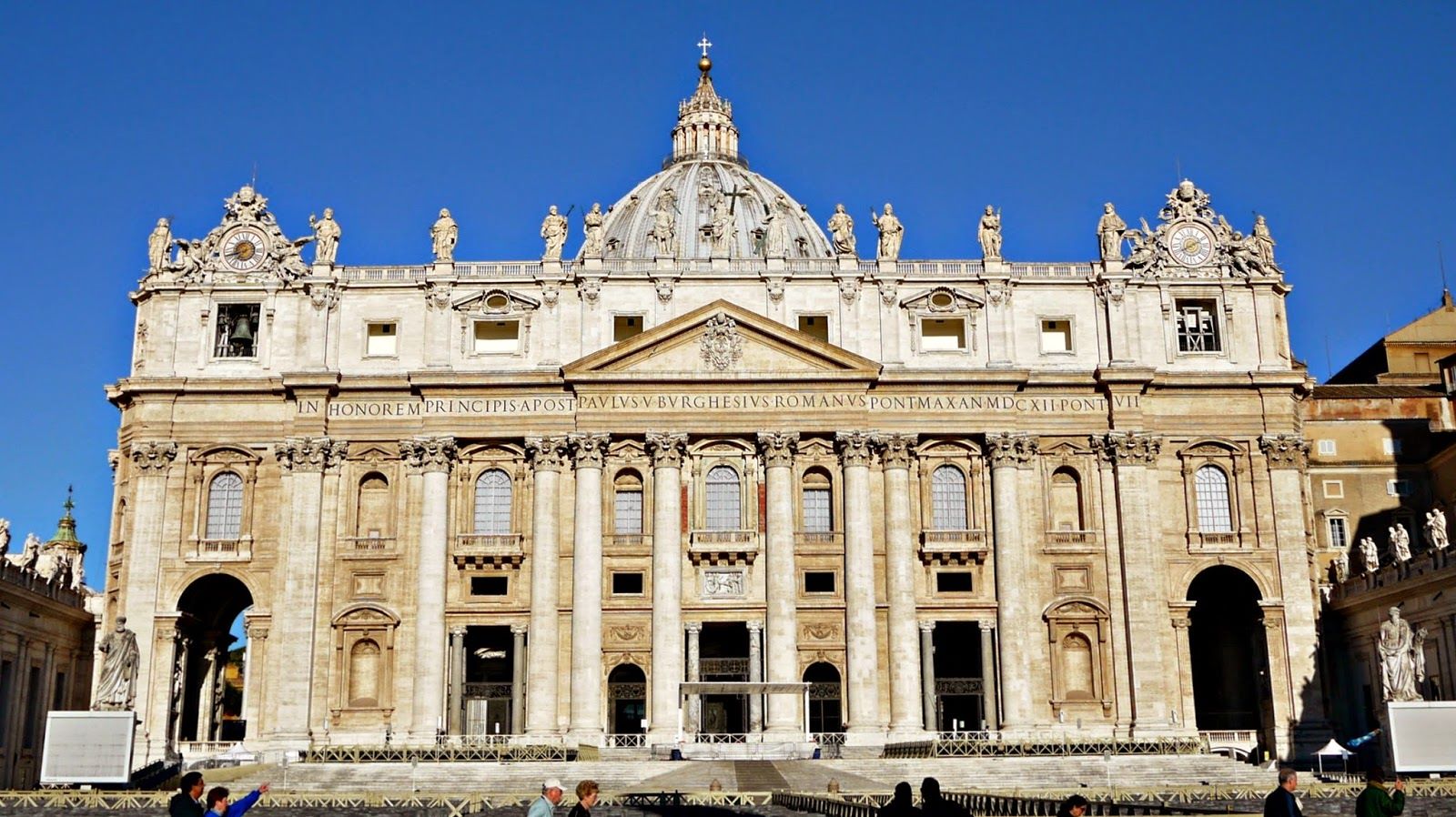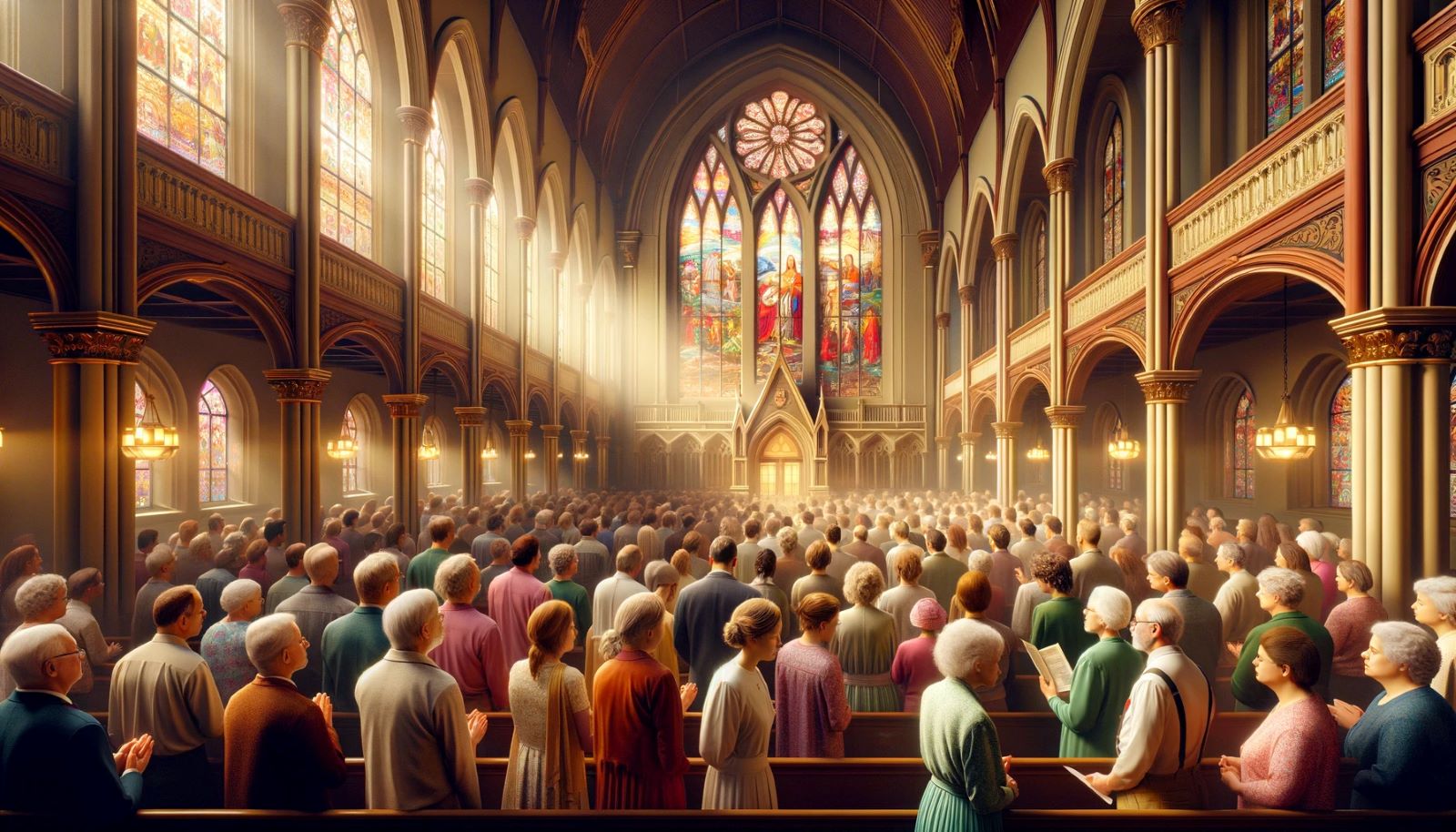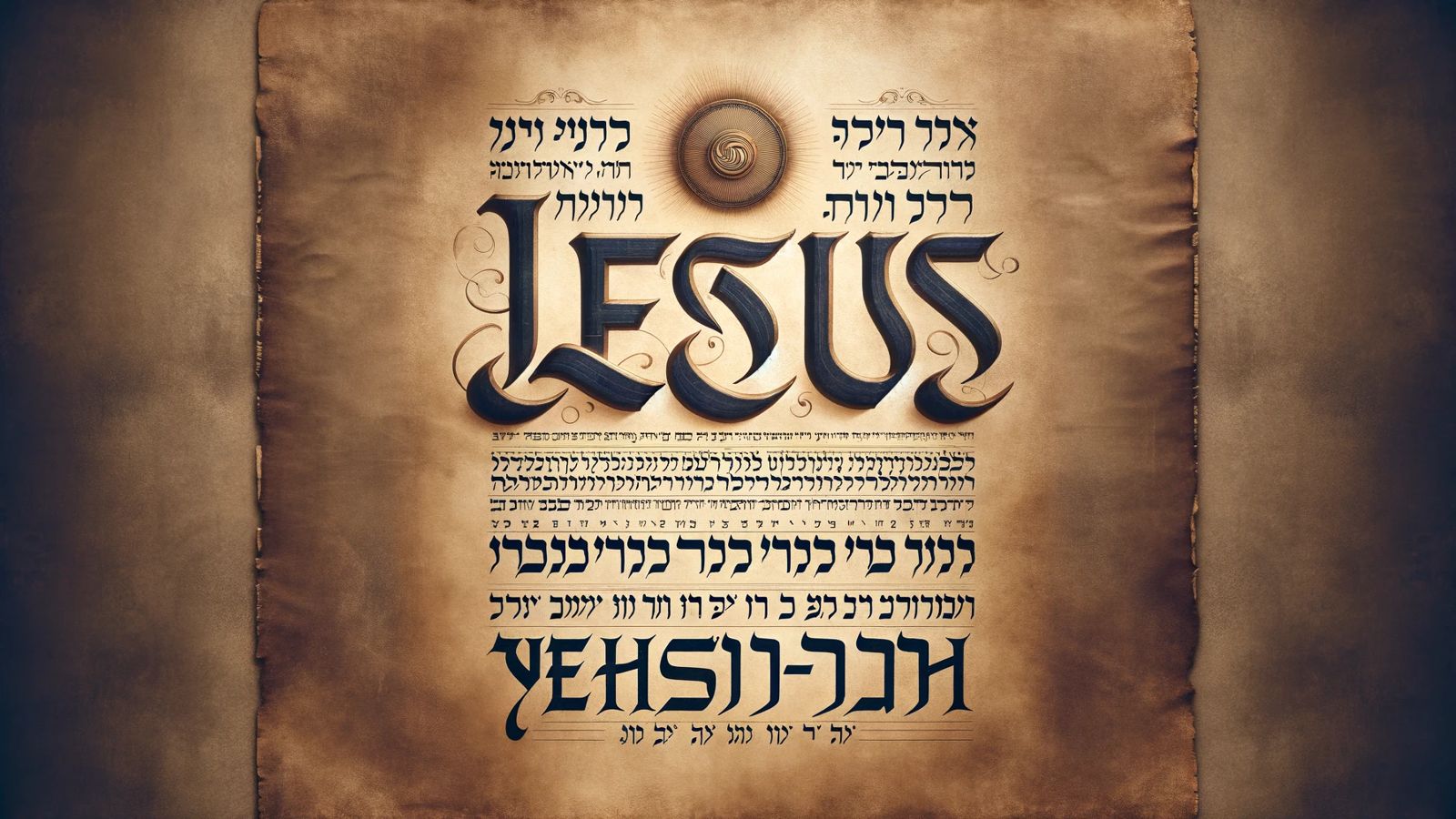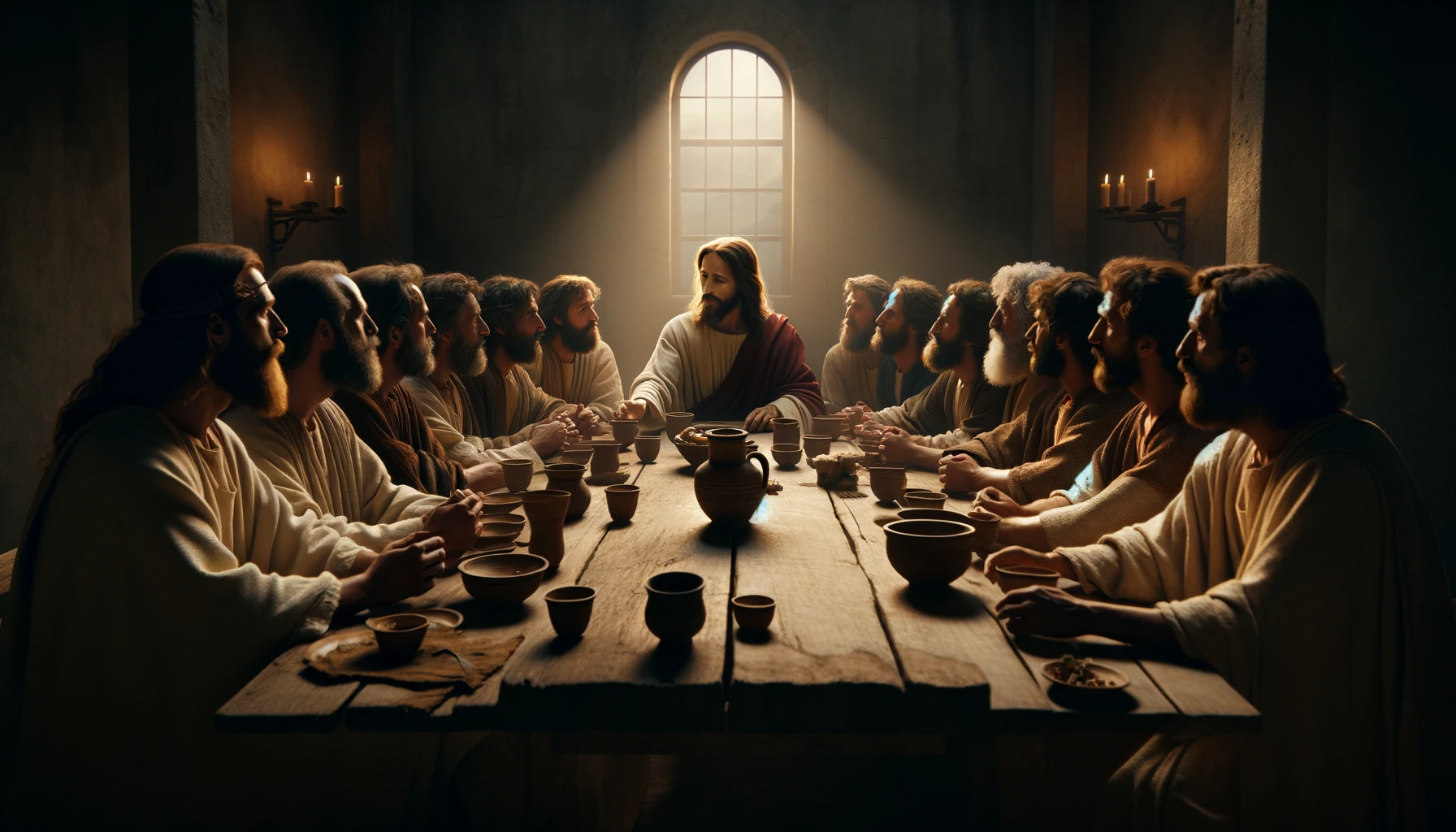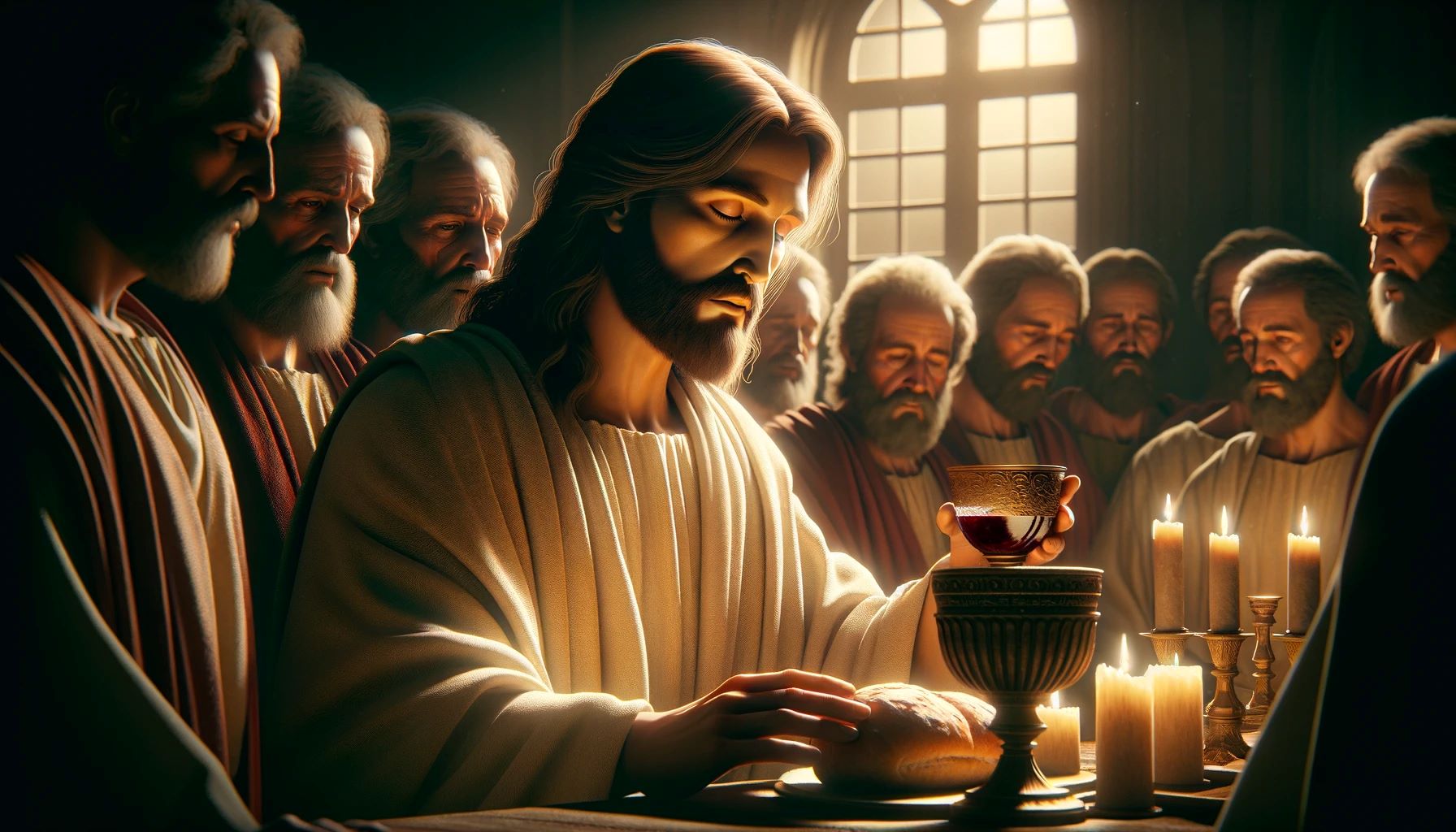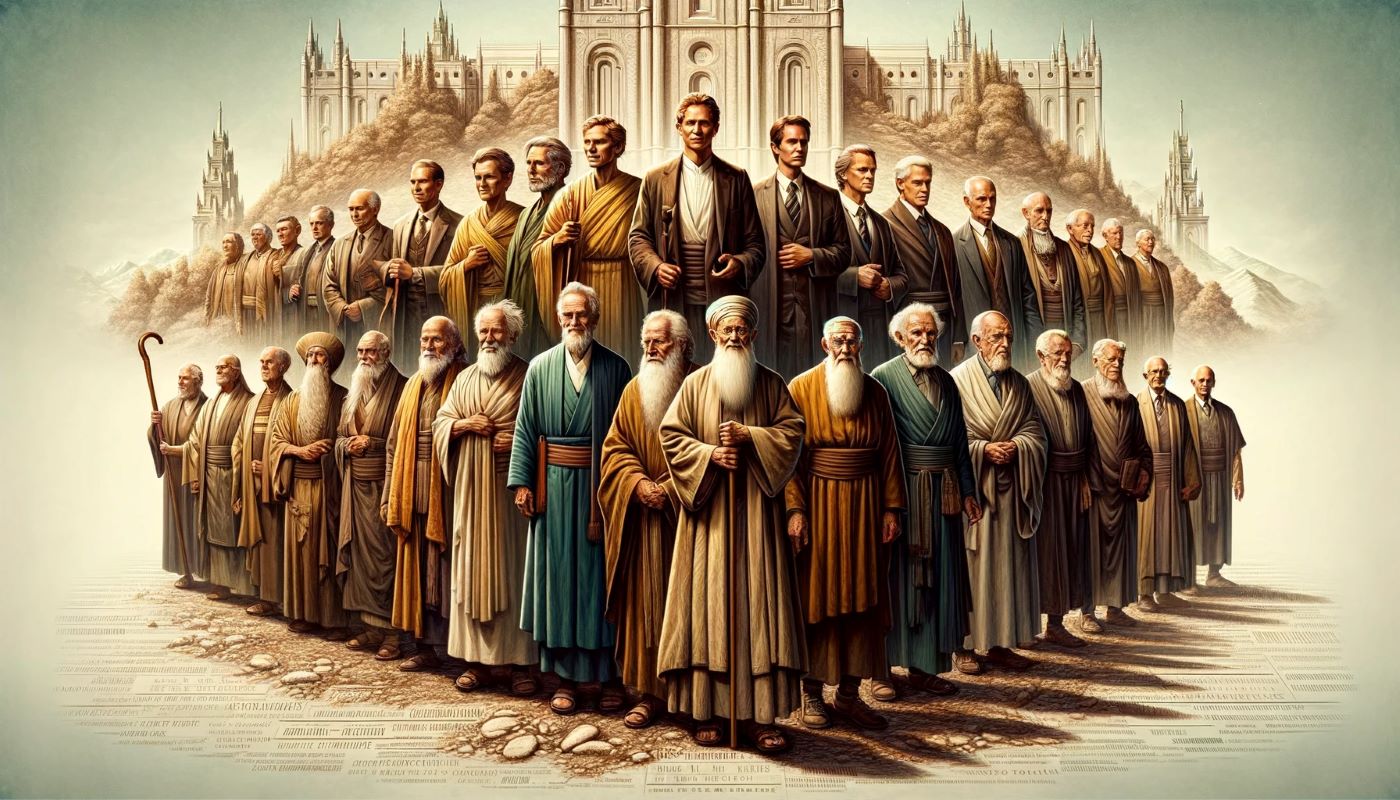Home>Bible Facts>How Can Someone Say That The Apostles Worshipped On Sunday
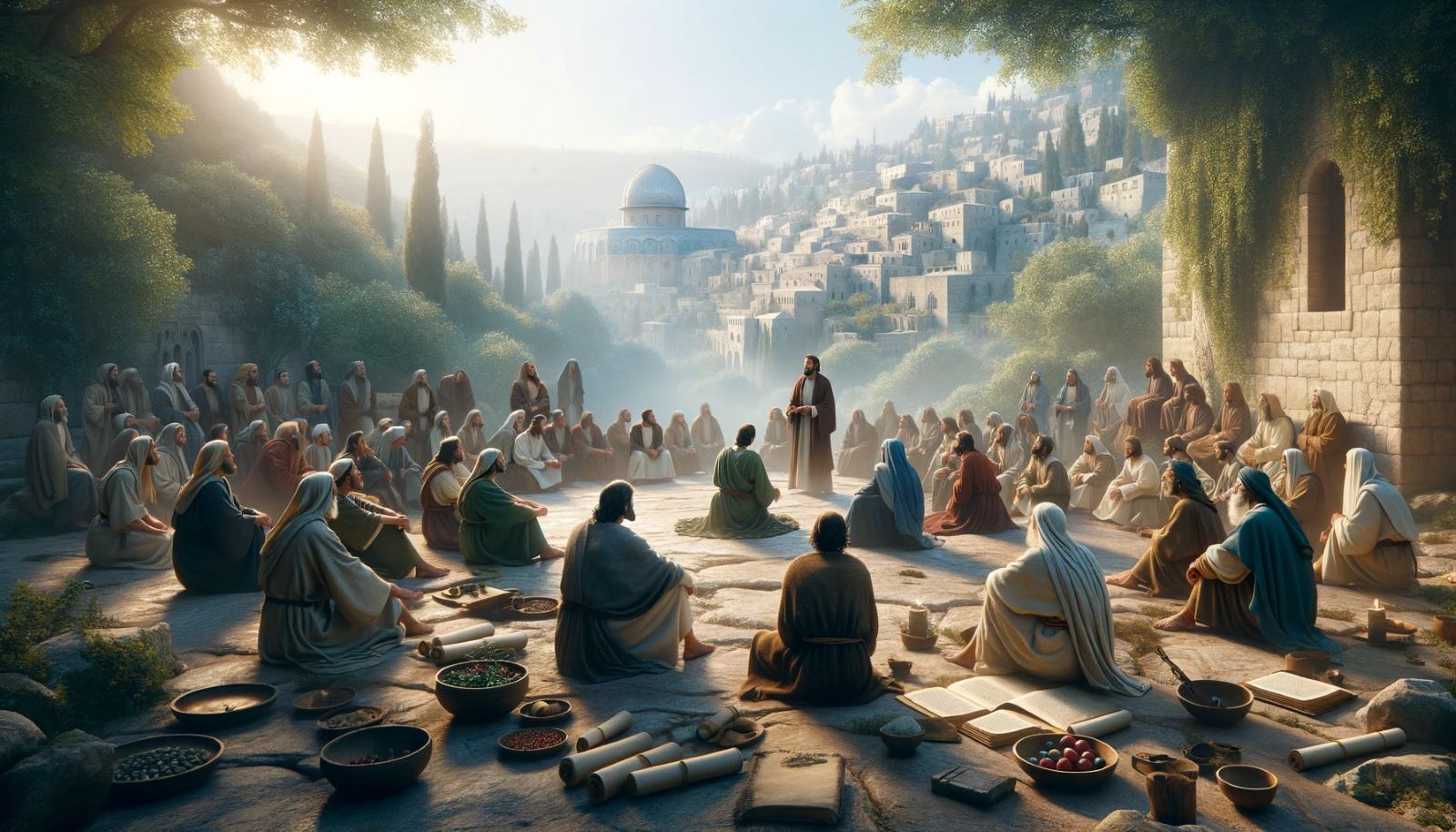

Bible Facts
How Can Someone Say That The Apostles Worshipped On Sunday
Published: February 18, 2024
Jason DeRose, Managing Editor at Christian.net, uses his expertise in religion and journalism to deepen understanding of faith's societal impacts. His editorial leadership, coupled with a strong academic background, enriches the platform’s diverse content, earning him recognition in both journalism and religious circles.
Discover the truth about the apostles' worship practices on Sunday and explore fascinating Bible facts in this insightful discussion. Uncover the historical and biblical evidence.
(Many of the links in this article redirect to a specific reviewed product. Your purchase of these products through affiliate links helps to generate commission for Christian.net, at no extra cost. Learn more)
Table of Contents
Introduction
The topic of whether the apostles worshipped on Sunday is a subject of considerable interest and debate among scholars, theologians, and believers. It delves into the historical, religious, and cultural contexts of the early Christian church, shedding light on the transition from observing the Sabbath on Saturday to worshipping on Sunday. This shift has sparked discussions about the significance of Sunday as the day of worship and its connection to the resurrection of Jesus Christ.
As we explore this intriguing topic, we will journey through the Old Testament to understand the origins and significance of the Sabbath, examine the pivotal event of the resurrection on Sunday, and delve into the practices of the early Christian church. By delving into the scriptural evidence and historical accounts, we aim to gain a deeper understanding of the apostles' worship practices and the evolution of Sunday as the day of communal worship.
The apostles' worship practices and the choice of Sunday as the day of worship are intertwined with profound theological and historical implications. By examining these aspects, we can gain insights into the early Christian community's beliefs, traditions, and the factors that influenced the transition from Sabbath observance to Sunday worship.
In the subsequent sections, we will embark on a comprehensive exploration of the Sabbath in the Old Testament, the significance of the resurrection on Sunday, the early church's worship practices, and the scriptural evidence supporting Sunday worship. Through this journey, we will unravel the complexities surrounding the apostles' worship on Sunday and gain a deeper appreciation for the historical and spiritual significance of this transition.
Read more: Why Do Baptist Worship On Sunday
The Sabbath in the Old Testament
The concept of the Sabbath, originating in the Old Testament, holds profound significance in the religious and cultural heritage of the Jewish people. The Sabbath, known as Shabbat in Hebrew, is rooted in the creation narrative in the book of Genesis. According to the biblical account, after creating the heavens and the earth in six days, God rested on the seventh day, sanctifying it as a day of rest and reflection. This establishment of the Sabbath as a sacred day of rest is a cornerstone of Jewish tradition and observance.
The commandment to observe the Sabbath is explicitly articulated in the Decalogue, also known as the Ten Commandments, which were given to Moses on Mount Sinai. The fourth commandment states, "Remember the Sabbath day, to keep it holy. Six days you shall labor and do all your work, but the seventh day is the Sabbath of the Lord your God. In it, you shall do no work" (Exodus 20:8-10). This commandment underscores the significance of dedicating the seventh day to rest, worship, and spiritual rejuvenation.
Throughout the Old Testament, the observance of the Sabbath is reiterated and emphasized as a perpetual covenant between God and the people of Israel. It is regarded as a day of ceasing from labor, a time for communal worship, and an opportunity for spiritual reflection and renewal. The Sabbath is deeply intertwined with the rhythm of life, serving as a weekly reminder of God's creative power and His covenant with His people.
The observance of the Sabbath encompasses various rituals and traditions, including the lighting of candles, partaking in festive meals, engaging in prayer and study of sacred texts, and refraining from activities deemed as work. The Sabbath is a time for families to gather, share in fellowship, and engage in acts of kindness and charity.
The Old Testament provides a rich tapestry of narratives, laws, and prophetic exhortations that underscore the sanctity and significance of the Sabbath. It serves as a foundational element of Jewish identity and faith, shaping the religious practices and cultural heritage of the Jewish people throughout history.
In summary, the Sabbath in the Old Testament is a testament to the divine mandate for rest, reflection, and worship. Its enduring legacy continues to resonate within the Jewish faith and has also influenced the practices of Christianity, contributing to the ongoing dialogue surrounding the observance of the Sabbath and the worship practices of the early Christian church.
The Resurrection on Sunday
The pivotal event of the resurrection of Jesus Christ on a Sunday holds profound significance in Christian theology and tradition. According to the New Testament accounts, Jesus was crucified and laid to rest in a tomb on Friday, which is commemorated as Good Friday. The subsequent events, as chronicled in the Gospels, culminated in the miraculous resurrection of Jesus on the third day, which is celebrated as Easter Sunday.
The resurrection of Jesus Christ is the cornerstone of the Christian faith, symbolizing victory over sin and death. The significance of this event in relation to the choice of Sunday as the day of worship cannot be overstated. The early followers of Jesus, including the apostles, were profoundly impacted by the resurrection, which transformed their understanding of Jesus' identity and mission.
The resurrection on Sunday not only marked the triumph of life over death but also ushered in a new era in the history of salvation. It signified the fulfillment of prophecies, validated Jesus' claims, and affirmed the redemptive purpose of His earthly ministry. The apostles, who were eyewitnesses to the resurrected Christ, experienced a profound spiritual awakening that fueled their mission to spread the message of the Gospel.
The significance of the resurrection on Sunday reverberates throughout the New Testament, shaping the early Christian community's worship practices and theological framework. The first day of the week, traditionally known as the Lord's Day, became emblematic of the transformative power of Christ's resurrection and the hope it instilled in the hearts of believers.
The resurrection on Sunday served as a catalyst for the early Christians to gather for communal worship, prayer, and the breaking of bread. It became a day of rejoicing, reflection, and spiritual renewal, as the followers of Jesus commemorated the profound impact of the resurrection on their faith and identity.
The resurrection on Sunday not only solidified the apostles' conviction in the divinity of Jesus but also influenced the trajectory of Christian worship. The commemoration of the resurrection on the first day of the week became a defining element of Christian tradition, laying the foundation for the eventual transition from Sabbath observance to Sunday worship.
In essence, the resurrection on Sunday stands as a transformative and pivotal event in Christian history, shaping the beliefs, practices, and communal worship of the early church. Its profound impact reverberates through the annals of Christian tradition, underscoring the theological and spiritual significance of Sunday as the day of worship for believers worldwide.
The Early Church's Practice
The early church's practice of worship and communal gatherings played a pivotal role in shaping the trajectory of Christian tradition and the observance of the Lord's Day. Following the resurrection of Jesus Christ, the fledgling Christian community, comprised of the apostles, disciples, and newly converted believers, sought to establish a framework for worship and fellowship that reflected the transformative impact of the resurrection.
The early Christians, deeply rooted in Jewish traditions and teachings, initially continued to observe the Sabbath as a day of rest and communal worship. However, a significant shift began to unfold as they gathered on the first day of the week, known as the Lord's Day, to commemorate the resurrection and partake in the breaking of bread. This emerging practice marked a departure from the traditional Sabbath observance and signaled the dawning of a new era in Christian worship.
The apostolic writings, particularly the New Testament epistles and the Acts of the Apostles, provide glimpses into the early church's worship practices and the significance of gathering on the Lord's Day. The apostle Paul, in his letters to the Corinthian and Roman churches, alludes to the custom of assembling for worship and fellowship on the first day of the week. This practice reflects the growing emphasis on Sunday as a day of communal worship and spiritual edification within the early Christian communities.
The Acts of the Apostles offers insights into the early church's gatherings, depicting scenes of believers coming together for prayer, teaching, and the sharing of meals. These communal gatherings, often held on the Lord's Day, fostered a sense of unity, mutual support, and the proclamation of the Gospel message. The apostles, as spiritual leaders, played a central role in guiding and nurturing the early Christian assemblies, emphasizing the significance of the Lord's Day as a time for worship, reflection, and the celebration of Christ's resurrection.
As the early church expanded and encountered diverse cultural contexts, the practice of gathering on the Lord's Day gained prominence and became ingrained in the fabric of Christian worship. The commemoration of the resurrection on Sunday became a unifying force, transcending geographical boundaries and cultural differences, as believers across various regions embraced the tradition of assembling on the first day of the week.
In summary, the early church's practice of gathering on the Lord's Day reflects the transformative impact of the resurrection on Christian worship and communal gatherings. This evolving tradition laid the groundwork for the eventual transition from Sabbath observance to Sunday worship, shaping the identity and worship practices of the burgeoning Christian community.
Scriptural Evidence for Sunday Worship
The scriptural evidence for Sunday worship is rooted in the New Testament, where significant references and narratives underscore the early Christian community's observance of the Lord's Day. This emerging tradition, centered on gathering for worship and fellowship on the first day of the week, reflects the profound impact of the resurrection of Jesus Christ and its influence on the worship practices of the apostolic church.
One of the pivotal passages that illuminates the early Christians' practice of assembling on the Lord's Day is found in the New Testament book of Acts. In Acts 20:7, the narrative depicts a poignant scene where the disciples gathered on the first day of the week to break bread. This act of communal sharing and partaking in the Lord's Supper signifies the significance of Sunday as a day of worship and spiritual communion among the believers. The deliberate mention of the first day of the week in this context underscores the emerging tradition of Sunday gatherings within the early Christian community.
Furthermore, the apostle Paul, in his first letter to the Corinthians, provides additional insight into the observance of the Lord's Day. In 1 Corinthians 16:2, Paul instructs the Corinthian church regarding the collection for the saints, stating, "On the first day of every week, each of you is to put something aside and store it up, as he may prosper, so that there will be no collecting when I come." This directive not only reflects the practice of gathering on the first day of the week but also underscores the significance of Sunday as a time for communal worship and acts of benevolence within the early Christian assemblies.
Moreover, the book of Revelation offers a profound glimpse into the significance of the Lord's Day in the context of worship and spiritual revelation. In Revelation 1:10, the apostle John writes, "I was in the Spirit on the Lord's day, and I heard behind me a loud voice like a trumpet." This reference to the Lord's Day as a time of spiritual encounter and divine revelation underscores its sacred significance within the early Christian consciousness.
The scriptural evidence for Sunday worship, as gleaned from the New Testament, provides compelling insights into the early church's observance of the Lord's Day. These passages illuminate the emerging tradition of gathering for worship, fellowship, and the commemoration of the resurrection on the first day of the week, laying the foundation for the eventual transition from Sabbath observance to Sunday worship within the apostolic church.
This scriptural evidence not only underscores the theological and spiritual significance of Sunday as the day of communal worship but also sheds light on the transformative impact of the resurrection on the worship practices and communal gatherings of the early Christian community.
Read more: How Do Baptist Worship
Conclusion
In conclusion, the question of whether the apostles worshipped on Sunday delves into the rich tapestry of biblical history, theological significance, and the evolution of Christian worship practices. The exploration of this topic has provided profound insights into the transition from Sabbath observance to Sunday worship within the early Christian church.
The Sabbath, deeply rooted in the Old Testament, serves as a foundational element of Jewish tradition and faith. Its observance as a day of rest, reflection, and communal worship laid the groundwork for the early Christian community's engagement with the concept of the Lord's Day. The significance of the resurrection on Sunday, as the pivotal event that transformed the apostles' understanding of Jesus' mission and identity, catalyzed the emergence of Sunday as the day of communal worship.
The early church's practice of gathering on the Lord's Day, as evidenced in the New Testament, reflects the transformative impact of the resurrection on Christian worship and communal gatherings. The apostolic writings and narratives provide compelling evidence of the early Christians' observance of the first day of the week as a time for worship, fellowship, and the commemoration of the resurrection.
Scriptural evidence, particularly from the book of Acts, the epistles of Paul, and the book of Revelation, underscores the significance of Sunday worship within the early Christian community. These passages illuminate the emerging tradition of gathering for worship, fellowship, and the commemoration of the resurrection on the first day of the week, laying the foundation for the eventual transition from Sabbath observance to Sunday worship.
The apostles' worship on Sunday, influenced by the transformative impact of the resurrection and the emerging traditions within the early Christian community, holds profound theological and historical significance. It symbolizes the triumph of life over death, the fulfillment of prophecies, and the unifying force that shaped the identity and worship practices of the burgeoning Christian community.
In essence, the apostles' worship on Sunday reflects the enduring legacy of the resurrection and its impact on the early church's worship practices. This transition from Sabbath observance to Sunday worship underscores the profound theological and spiritual significance of the Lord's Day as a time for communal worship, reflection, and the celebration of Christ's resurrection. The apostles' embrace of Sunday worship stands as a testament to the transformative power of the resurrection and its enduring influence on Christian tradition and communal gatherings.
Through this exploration, we have gained a deeper appreciation for the historical and spiritual significance of the apostles' worship on Sunday, shedding light on the enduring legacy of the resurrection and its impact on the worship practices of the early Christian church.
